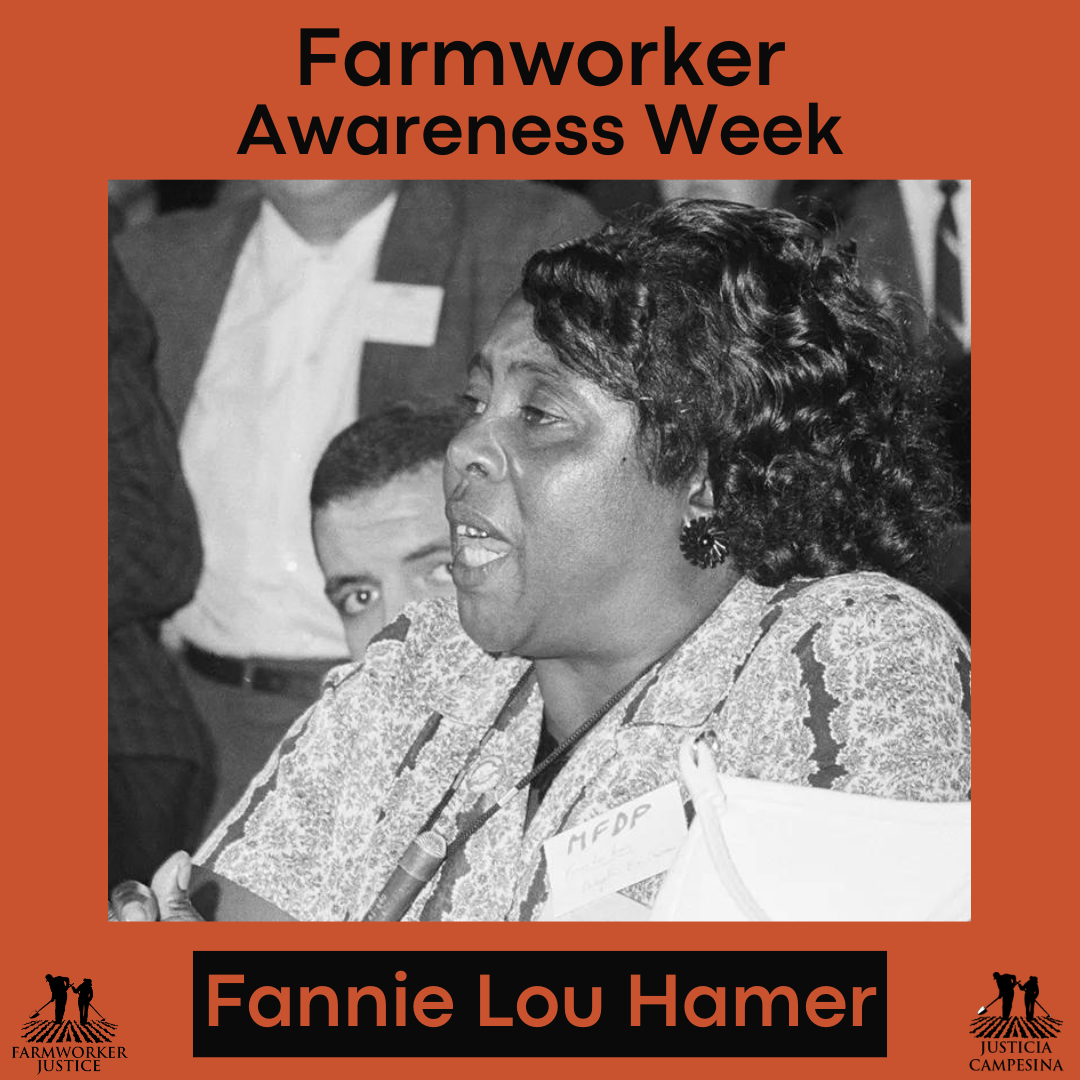Farmworker Icon Highlight: Fannie Lou Hamer

A direct victim of America’s biggest sin, Fannie Lou Hamer lived in the eye of the storm that was racism, segregation, Jim Crow, you name it. That didn’t stop this woman from making her mark and etching her name in history.
Being born in 1917 Montgomery County, Mississippi put Fannie in the most adverse situation you can imagine. Her family were sharecroppers, and as early as six years old, Fannie joined them in the fields. At the age of 12, she would drop out of school and work full time. 1
In 1944, Fannie would get married and live on the plantation with her husband till 1962. She was appointed time keeper because she was the only one that would read and write. It would be in the summer of 1961 where Fannie began to realize her calling in activism. She attended a meeting run by the Student Nonviolent Coordinating Committee, and then started to work for them. 2
In 1962, Fannie attempted to vote and led a group of volunteers to follow suit. This would cause the owner of the plantation, B.D. Marlowe, to kick her out. Her husband was forced to stay for the following harvest but would leave soon after.
A “pig bank” would be started up in 1968 to provide free pigs for Black farmers to breed, raise and eventually slaughter for food. Just a year later she launched the Freedom Farm Cooperative (FFC), buying land for Black farmers to own and farm collectively. 1
Fannie was able to purchase 640 acres worth of land, through the help of donors, and launched a coop store, boutique and sewing enterprise. This would go on until Fannie’s passing in 1977. She also single handedly ensured that 200 housing units were built for low-income families, many of which still are up today. 1
It goes without saying that this amazing woman faced what is incomprehensible in today’s day and age. To face what she did, however, and not even seem to flinch once? Now that is something Fannie Lou Hamer will always be one of one for.
1 Michals, Debra. “Fannie Lou Hamer.” National Women’s History Museum, 2017, https://www.womenshistory.org/education-resources/biographies/fannie-lou-hamer
2 History.com Editors. “Fannie Lou Hamer.” History, 9 Nov. 2009, https://www.history.com/topics/black-history/fannie-lou-hamer

